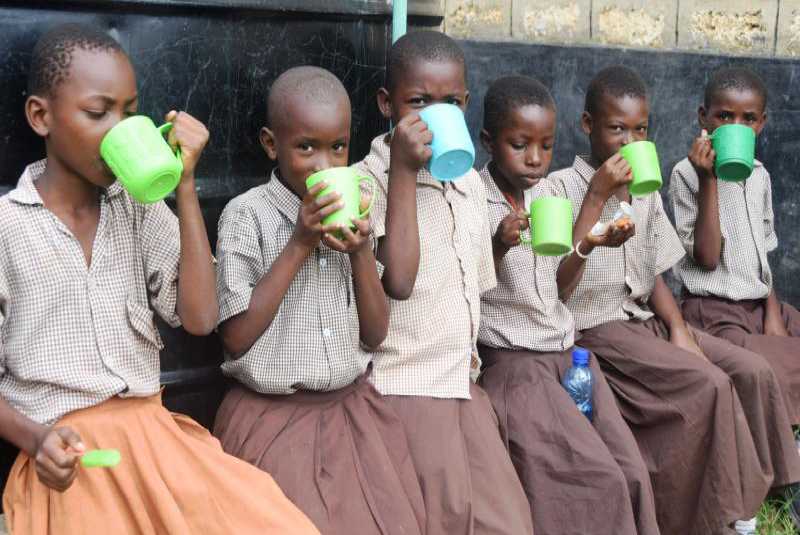×
The Standard e-Paper
Join Thousands Daily

Pupils from Kashani Primary School in Kisauni Constituency enjoy some porridge at break time, May 31, 2018. The daily porridge programme was introduced to the school last year by an NGO and has seen the number of pupils attending classes increase from five hundred to seven hundred and fifty. [PHOTO: GIDEON MAUNDU/STANDARD]].
The government will remit cash directly to primary schools for purchase of rations under the School Feeding Programme (SFP).